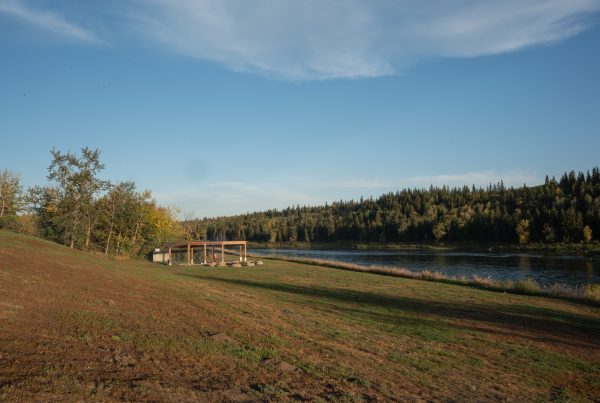TREATY 8 JUSTICE FOR THE PEACE CARAVAN WANTS PRIME MINISTER TRUDEAU TO KEEP HIS PROMISES TO FIRST NATIONS
On September 12, the Federal Court of Appeal in Montreal will hear the latest legal challenge to the massive Site C hydroelectric dam already under construction on Treaty 8 territory in northeast British Columbia.
First Nations leaders, elders and other community members from Treaty 8 are driving across Canada to focus attention of the importance of this case to the rights of all treaty nations and to Prime Minister Justin Trudeau’s promised new relationship with First Nations.
The Justice for the Peace caravan is endorsed by the Assembly of First Nations British Columbia, the First Nations Leadership Summit, and the Union of BC Indian Chiefs.

What’s at stake:
- Are governments in Canada accountable to spirit and intent of historic treaties when making decisions about large-scale resource development project?
- What did Justin Trudeau really mean when he promised to respect treaty rights and uphold the United Nations Declaration on the Rights of Indigenous Peoples?
Timetable
Sept. 5: Justice for the Peace Caravan leaves Fort St. John, BC
Sept 6-11: Hosted by treaty nations across Canada, including in Edmonton, Saskatoon, Winnipeg
Sept 12: Court hearing in Montreal
Sept 13: Caravan arrives in Ottawa celebrate anniversary of UN adoption of the Declaration on the Rights of Indigenous Peoples
BACKGROUND
Our people, the Prophet River and West Moberly First Nations, have been fighting the Site C hydroelectric dam project for close to five decades. The massive dam threatens to flood three of the largest rivers in our territory: the Peace, Moberly, and Halfway Rivers. Over 107 kilometers of these river valleys and their tributaries could be under water. This is land we rely on to hunt, fish and hold ceremonies. Our ancestors are buried here.
In 2014, the federal and provincial governments approved construction of the dam despite the fact that their own environmental impact assessment process found that it would cause serious, irreparable harm to First Nations use of our traditional lands. This is of urgent concern to our communities because of the historical and sacred importance of this land and because so much of the rest of our traditional territory has already been disrupted by massive, ongoing oil and gas development, mining, logging and the construction of two previous large dams on the Peace River.
While the federal and provincial governments claim to have respected our rights, they deliberately chose to ignore the question of whether construction of the dam was compatible with their legal obligations under Treaty 8 and the Constitutional protection of Aboriginal and Treaty rights.
Preparation for construction of the dam has proceeded at a breakneck pace since July 2015 while legal challenges by First Nations and local landowners work their way through the court system,
On September 12, 2016, we will be in Montreal in the Federal Court of Appeal to challenge the Canada’s project approval. We are challenging whether Canada is justified in approving projects without undertaking their own analysis and determination on infringement of Treaty rights.The implications of the case are far reaching, especially for other Treaty First Nations.
Additionally, many characterize the Site C dam as a litmus test of the commitment’s made by Canada to have a renewed, nation-to-nation relationship with First Nations; a respectful relationship that honours Treaties and the United Nations Declaration on the Rights of Indigenous Peoples.






